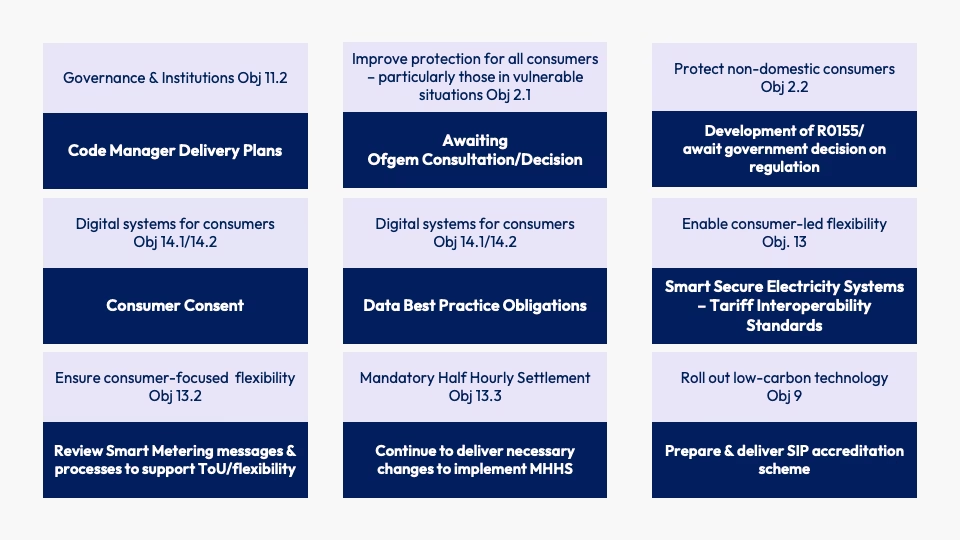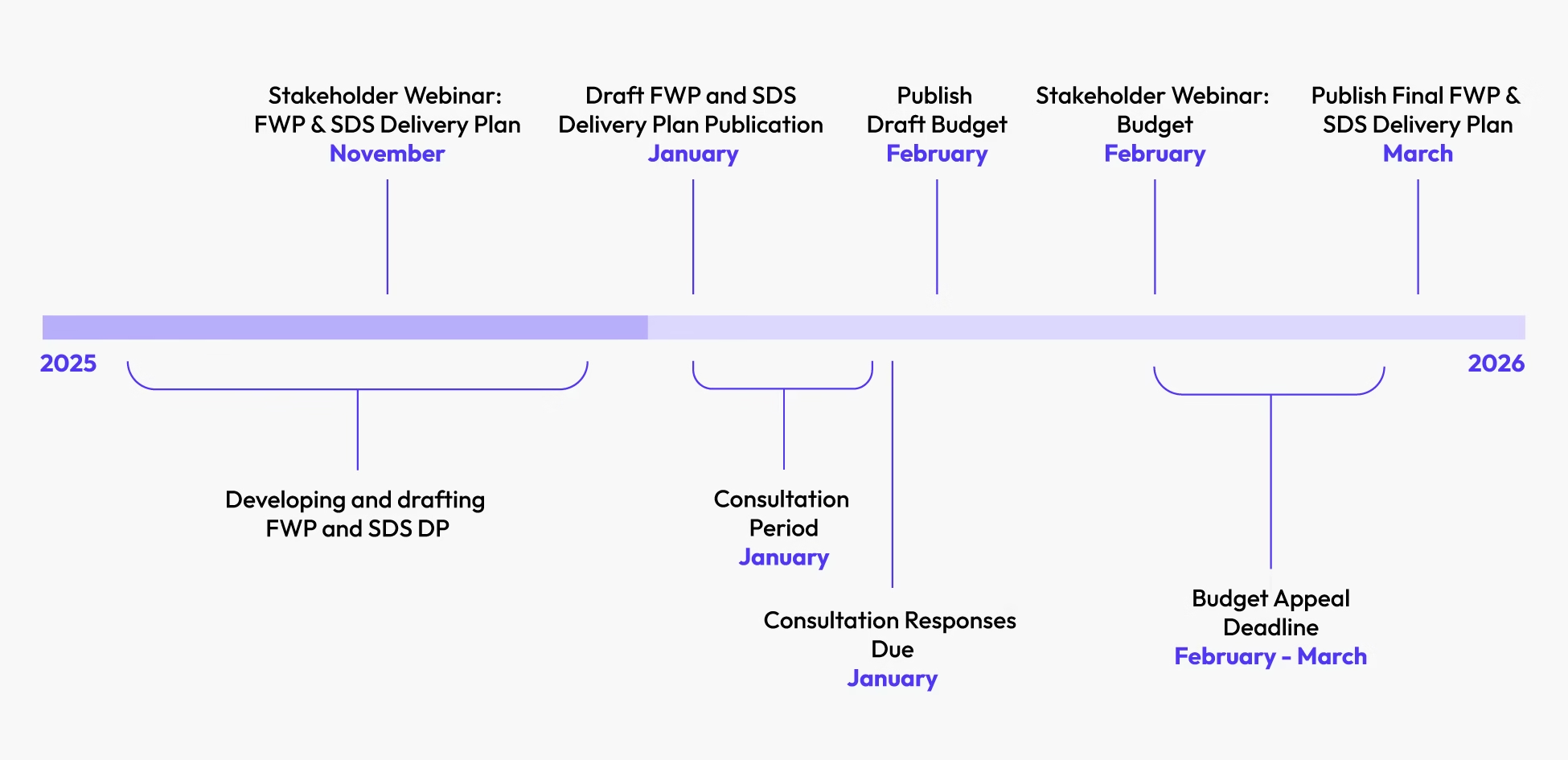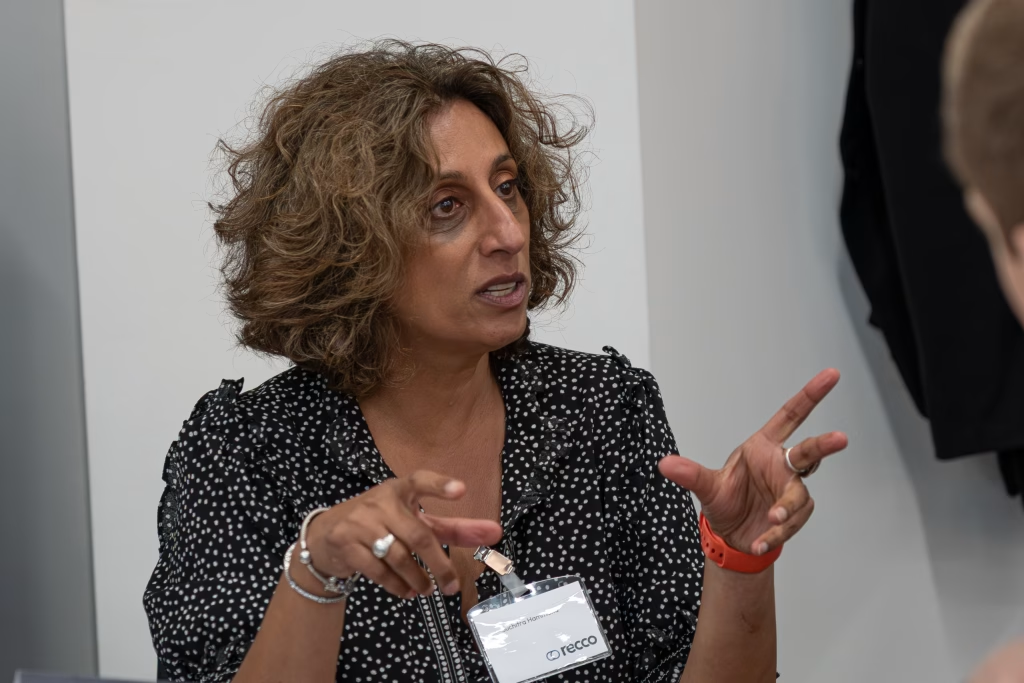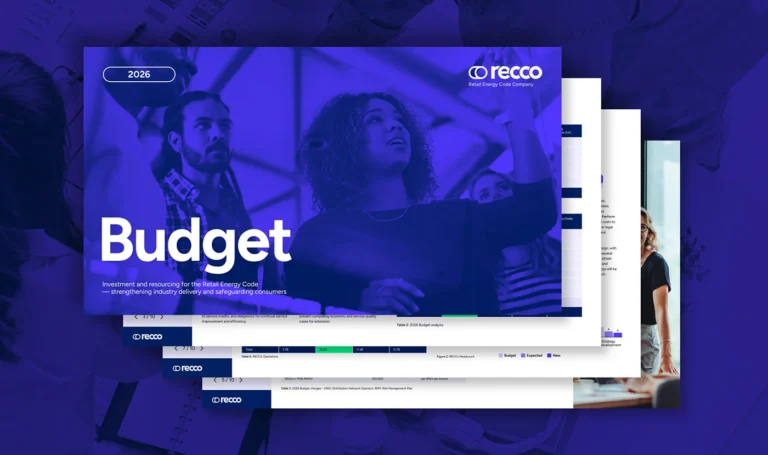What is the preliminary Strategic Direction Statement, and where does it come from?
The Preliminary Strategic Direction Statement (SDS) for industry codes sets out Ofgem’s early view of how energy codes should evolve to deliver a Net Zero, flexible, and consumer-focused energy system—one that delivers the Clean Power 2030 goal and wider government policy aims.
The document spans several initiatives across retail markets, infrastructure, and flexibility. It signals an ambitious work programme, but it does not yet provide clear priorities, milestones, or detailed deliverables.
Objectives are grouped into three time horizons: Act Now, Think & Plan, Listen & Wait. Many actions fall under Act Now, but some areas still depend on future consultations or government decisions.
While the preliminary SDS is non-binding and will only bite once Code Manager Licences are in place, we’re already embracing its direction to ensure that, as we become licensed, we’re ready to deliver on its requirements.
What’s the aim of publishing a preliminary SDS? And how does it fit within the broader REC governance framework?
The Preliminary SDS serves several key purposes:
- It helps Ofgem refine the future SDS process
- It allows Code Managers like RECCo to start preparing for their new licensed roles
- It gives the industry early visibility of potential areas of focus across codes, from raising service standards to supporting innovation in new retail offering
For RECCo, it’s particularly timely. In July 2025, Ofgem confirmed its intention to grant us a Code Manager licence, marking a major milestone in the evolution of the Retail Energy Code. Once the licence takes effect, the SDS process will become a central part of how we plan and deliver against our statutory duties.
How does it link to RECCo’s Forward Work Plan?
Act Now — priorities to be delivered within two years
The Act Now category contains initiatives that Ofgem believes should be progressed over the next two years. Many of these initiatives are already well understood and underway through the REC, forming part of our Forward Work Plan 2025-28. For example, development of the Consumer Consent Solution and Tariff Data Interoperability Standards.
This illustration highlights the Act Now SDS objectives most closely aligned with our current plan.

There are some new initiatives, such as the proposed Safe Isolator Provider accreditation scheme, which we’ll work with Ofgem and government to help deliver, and building upon previous REC changes in this area. Other areas—such as protecting consumers and particularly improving protections for those in vulnerable situations—are highlighted as core objectives but lack detail at this stage. Instead, the SDS simply indicates that future code modifications may be needed to strengthen support for vulnerable customers.
Think & Plan — policies in development over the next two to five years
These initiatives are less defined and will require further planning and engagement while government and Ofgem refine their policy proposals. However, there’s a risk that some elements—such as the proposed Electricity Bill Discount scheme, aimed at compensating households located within 500 meters of new or upgraded electricity transmission infrastructure, may need to be delivered sooner than the current Think & Plan timeline suggests, with government aiming for implementation by winter 2026-27.
Listen & Wait — initiatives dependent on future policy or wider reforms
This horizon covers proposals that depend on future government and Ofgem decisions, so no immediate REC modifications are planned.
Together, the SDS challenges us to go further, ensuring our Forward Work Plan 2026-29 not only reflects our mission and strategic aims but also stays fully aligned with Ofgem’s future direction for code change. In effect, it helps us bridge our current plans with our emerging role as a licensed Code Manager.
What areas have you identified for improvement?
While the SDS provides a useful framework, we’ve identified several areas that would benefit from greater depth. For example, within the Act Now category, where some deliverables still depend on further government or Ofgem decisions.
We also think a clearer critical path to delivery would help stakeholders plan ahead and better understand the dependencies between initiatives. In our feedback to Ofgem, we’ve emphasised that delivery planning should be more integrated and iterative, allowing Code Bodies to help shape realistic implementation timelines.
One of our key recommendations is to involve Code Managers earlier in the process. This would allow more detailed deliverables to be developed ahead of the formal SDS consultation, making sure that delivery plans meaningfully inform Ofgem’s priorities.
We’ve also proposed the development of shared guidance on two important areas: the new cooperation licence condition, and the standardised prioritisation framework that Ofgem intends to apply across codes. Both would help promote consistency and transparency in how SDS-aligned Change Proposals are taken forward.
Does RECCo see a role for itself in encouraging Ofgem’s ongoing engagement with SDS delivery?
This question came up during our recent REC Party Engagement Day, and it’s an important one. We expect Ofgem to use the forthcoming Code Manager SDS Delivery Plans to monitor and assess code changes, including how they align with regulatory priorities. The scale and impact of a change, especially if it cuts across multiple codes, will likely determine Ofgem’s engagement.
Beyond those more significant or cross-cutting initiatives, we don’t see a need for additional Ofgem involvement in individual code changes. The existing arrangements already provide clear routes for engagement where appropriate, ensuring Ofgem remains informed and involved at the right level without duplicating processes.
How do you plan to budget for something when there’s limited detail in the SDS?
This is another question raised during our recent REC Party Engagement Day, and it’s a very fair one. We fully recognise that it’s challenging to budget for activities where the SDS, particularly within the Act Now category, lacks detailed requirements. At the same time, we understand that within this two-year Act Now window, Ofgem may issue new expectations that the Code Manager will be required to deliver.
While this isn’t our preferred approach, because it introduces a degree of uncertainty, we’re considering how best to accommodate it. One option is to include reasonable contingency provisions within our Budget 2026-27 to ensure we can meet any statutory or licence-based obligations that arise. Our priority is to maintain financial prudence while staying ready to deliver when new requirements emerge.
Is there anything you feel is missing from the SDS, particularly from the Act Now category?
That’s a great question, and one that was also raised at the Engagement Day. It’s something we’re actively reflecting on. At this stage, we haven’t identified any obvious omissions, but we’re continuing to review the scope and intent of the Act Now category carefully. As we engage with stakeholders and fellow Code Bodies, we may identify opportunities to refine or expand elements of the SDS to make it even more effective and deliverable in practice.
What will this mean for REC Parties and stakeholders?
In practical terms, it means greater visibility of Ofgem’s future regulatory direction, plus more structured opportunities to influence it. Once licensed, we’ll be responsible for translating the SDS into clear, actionable deliverables that benefit consumers and support innovation across the retail energy market.
Stakeholders can expect closer alignment between policy intent, code development, and industry planning, along with a stronger focus on collaboration, transparency, and accountability.
What’s next for RECCo in this cycle?
As one of the first organisations to become a licensed Code Manager, we’re fully embracing the Preliminary SDS and ensuring its requirements are reflected in our forthcoming Forward Work Plan.
Here’s how our timeline will take shape.

How can stakeholders get involved in shaping its final direction?
Stakeholder engagement is essential, and now is the right time to get involved. Join our upcoming webinar session and share your views to help translate the SDS into practical, consumer-focused outcomes. Ways to engage:
- Join the Forward Work Plan 2026-29 webinar on 6 November 2025 (11.00-12.00 GMT) to hear about our proposed direction
- Book a bilateral meeting or get in touch with Suchitra Hammond at recco_strategy@retailenergycode.co.uk for questions or early input
Discover more resources
- Read about our current Strategy 2025-30 and Forward Work Plan 2025-28
- Read about our Help shape the retail energy market future: Forward Work Plan 2026–29
- Read about our Stakeholder engagement on Ofgem’s Strategic Direction Statement: Key insights and recommendations
- Access our first SDS drop-in session presentation slides
- Access our response to the preliminary SDS









